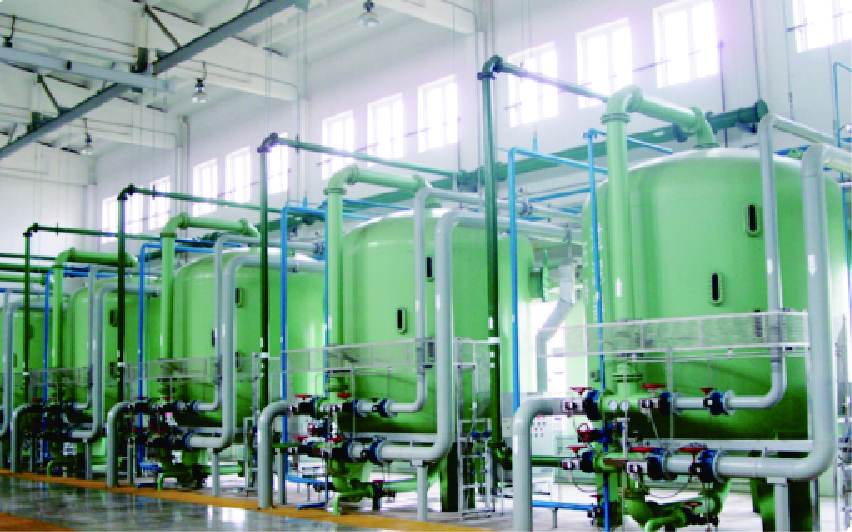
News
Aug . 06, 2024 14:06 Back to list
Tailored Micronutrient Fertilizer Solutions for Optimal Plant Growth and Soil Health Enhancement
Custom Micronutrient Fertilizer A Solution for Sustainable Agriculture
In recent years, the quest for sustainable agricultural practices has intensified, driven by the need to increase food production while minimizing environmental impact. One of the critical advancements in this domain is the development of custom micronutrient fertilizers. These specialized fertilizers are tailored to meet the unique nutrient requirements of various crops and soils, ultimately enhancing agricultural performance and sustainability.
Understanding Micronutrients
Micronutrients, despite being required in smaller quantities compared to macronutrients like nitrogen, phosphorus, and potassium, play a fundamental role in plant growth and development. Essential micronutrients include iron, zinc, copper, manganese, boron, molybdenum, and chlorine. Each of these elements contributes to numerous physiological processes within plants, such as photosynthesis, enzyme function, and overall nutrient uptake. A deficiency in any of these nutrients can lead to stunted growth, reduced crop yields, and lower quality produce, making the management of micronutrient levels crucial for farmers.
The Importance of Customization
The soil composition and nutrient needs vary significantly across different agricultural regions. Traditional fertilizers often adopt a one-size-fits-all approach, which may not effectively address the specific deficiencies present in local soils. Custom micronutrient fertilizers, however, offer a solution by allowing farmers to create a blend that is precisely formulated based on soil tests and crop requirements. This tailored approach ensures that plants receive the exact nutrients they need for optimal growth, leading to improved crop health and productivity.
Benefits of Custom Micronutrient Fertilizers
1. Enhanced Crop Yield and Quality By providing targeted nutrients, custom micronutrient fertilizers can enhance both the yield and quality of crops. For example, an adequate supply of zinc can improve flower and seed development in legumes, while iron is vital for chlorophyll synthesis in leafy greens.
custom micronutrient fertilizer company

2. Cost-Effectiveness Investing in custom micronutrient fertilizers can be more cost-effective in the long run. By addressing specific deficiencies, farmers can reduce their reliance on excess fertilizers, lower overall input costs, and improve their profit margins.
3. Environmental Sustainability Custom formulations help to minimize the environmental impact of agriculture. Targeted nutrient application reduces runoff and soil degradation, contributing to healthier ecosystems. Furthermore, by optimizing nutrient uptake, farmers can decrease their carbon footprint and enhance soil health.
4. Increased Resistance to Pests and Diseases Adequately nourished plants are generally more resilient against pests and diseases. Micronutrients such as copper and manganese play crucial roles in plant defense mechanisms, helping to produce stronger plants that can better withstand environmental stresses.
Future Directions
The adoption of custom micronutrient fertilizers is anticipated to grow, particularly as advancements in technology provide farmers with better tools for soil testing and nutrient management. Precision agriculture techniques, including the use of drones and soil sensors, enable farmers to monitor nutrient levels in real-time, ensuring that custom blends are optimized for changing conditions.
Additionally, as consumers increasingly demand produce that is both nutritious and sustainably grown, the market for custom micronutrient fertilizers is likely to expand. Companies specializing in these tailored solutions will need to stay ahead of trends and innovate continuously to meet the evolving needs of the agricultural sector.
Conclusion
Custom micronutrient fertilizers represent a significant step toward sustainable agriculture, providing farmers with the tools they need to maximize crop yield and quality while minimizing environmental impact. By investing in tailored nutrient solutions, the agricultural industry can work towards a more sustainable and productive future, ensuring food security for generations to come. As technology advances and the importance of sustainable practices becomes more pronounced, the role of custom micronutrient fertilizers will only continue to grow in significance.
-
Polyaspartic Acid Salts in Agricultural Fertilizers: A Sustainable Solution
NewsJul.21,2025
-
OEM Chelating Agent Preservative Supplier & Manufacturer High-Quality Customized Solutions
NewsJul.08,2025
-
OEM Potassium Chelating Agent Manufacturer - Custom Potassium Oxalate & Citrate Solutions
NewsJul.08,2025
-
OEM Pentasodium DTPA Chelating Agent Supplier & Manufacturer High Purity & Cost-Effective Solutions
NewsJul.08,2025
-
High-Efficiency Chelated Trace Elements Fertilizer Bulk Supplier & Manufacturer Quotes
NewsJul.07,2025
-
High Quality K Formation for a Chelating Agent – Reliable Manufacturer & Supplier
NewsJul.07,2025
